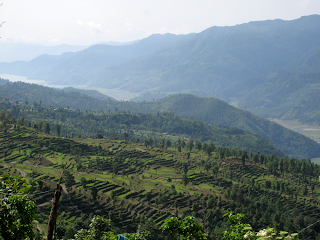The world is neither as good nor as just as I would like it to be.
This week, I decided that I could not finish the excellent nonfiction book Zeitoun by Dave Eggers because it was too depressing. Warning: spoilers ahead, though that feels like a wrong term for nonfiction.
This book described a Muslim man and his family's experience with Hurricane Katrina, and while I don't like to insulate myself from the world, everyone has their limits. At some point Zeitoun is imprisoned because he was still in New Orleans after the mandatory evacuation. There is sickening injustice in how he is treated, and nobody is held accountable.
I can often stomach terrible stories if I know the ending in advance--it's the suspense that grates on me, but this book has no real resolution. The book "ends" with the family together and healing, but midway through reading, I searched for a summary of the history (in order to get through the terrible prison moments), and I discovered that the couple are divorced and she accused him of attacking her. It's real life and there will be no true end until everyone involved is dead.
Again, I don't like to keep myself in a bubble, but some things are too much for me to manage. The narrative format of the book makes empathy very natural, to the point of my feeling a nauseating distrust of the government when I read it. And I just can't handle it. I need and want to trust the government in order to function as a citizen. Every institution will make mistakes and will even be fundamentally broken in some ways. Every individual will also make mistakes, either acting on their own or on behalf on an institution.
But there's a powerlessness that I felt when reading this book. In disastrous situations, it seems as though the government agencies have unlimited discretionary power and then proceed to make substantially flawed decisions. In the end, the only real lesson I learned was to obey mandatory evacuations. Keep your head down and follow the rules.
The other thing that was hard is that the emotional strength of the story comes from the family love and unity; this unravelled when I learned about the couple's sad history beyond the book. It makes me hope that all victims of disasters of this magnitude are getting the support they need. It's a little ridiculous to talk about how I had a hard time reading a story, when so many people are forced to live similar stories and worse.
This week, I decided that I could not finish the excellent nonfiction book Zeitoun by Dave Eggers because it was too depressing. Warning: spoilers ahead, though that feels like a wrong term for nonfiction.
This book described a Muslim man and his family's experience with Hurricane Katrina, and while I don't like to insulate myself from the world, everyone has their limits. At some point Zeitoun is imprisoned because he was still in New Orleans after the mandatory evacuation. There is sickening injustice in how he is treated, and nobody is held accountable.
I can often stomach terrible stories if I know the ending in advance--it's the suspense that grates on me, but this book has no real resolution. The book "ends" with the family together and healing, but midway through reading, I searched for a summary of the history (in order to get through the terrible prison moments), and I discovered that the couple are divorced and she accused him of attacking her. It's real life and there will be no true end until everyone involved is dead.
Again, I don't like to keep myself in a bubble, but some things are too much for me to manage. The narrative format of the book makes empathy very natural, to the point of my feeling a nauseating distrust of the government when I read it. And I just can't handle it. I need and want to trust the government in order to function as a citizen. Every institution will make mistakes and will even be fundamentally broken in some ways. Every individual will also make mistakes, either acting on their own or on behalf on an institution.
But there's a powerlessness that I felt when reading this book. In disastrous situations, it seems as though the government agencies have unlimited discretionary power and then proceed to make substantially flawed decisions. In the end, the only real lesson I learned was to obey mandatory evacuations. Keep your head down and follow the rules.
The other thing that was hard is that the emotional strength of the story comes from the family love and unity; this unravelled when I learned about the couple's sad history beyond the book. It makes me hope that all victims of disasters of this magnitude are getting the support they need. It's a little ridiculous to talk about how I had a hard time reading a story, when so many people are forced to live similar stories and worse.





















